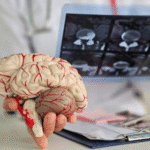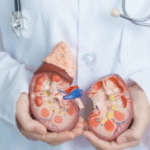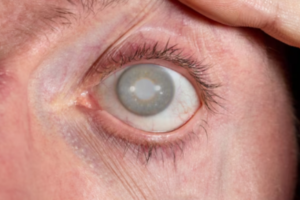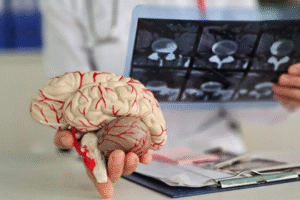Addiction treatment is a multifaceted process that aims to address both the physical and psychological aspects of substance use disorders. With a variety of treatment types available, it can be challenging to determine the best approach. In this post, we will explore the different types of addiction treatment, highlight the benefits of holistic treatment, and demonstrate how addiction treatment in California offers an ideal blend of traditional and holistic approaches.
Types of Addiction Treatment
Addiction treatment typically involves several key approaches, each targeting different aspects of the recovery process. Here’s an overview of the most common types:
1. Medical Detoxification
Medical detoxification is often the first step in addiction treatment. It involves the supervised removal of the substance from the body while managing withdrawal symptoms. This process is crucial for ensuring safety and comfort during the initial phase of recovery. Medical detox helps stabilize the individual and prepares them for further treatment by addressing immediate health concerns and easing the physical discomfort of withdrawal.
2. Inpatient Rehabilitation
Inpatient rehabilitation, or residential treatment, provides a structured environment where individuals live at the treatment facility. This type of program offers intensive care and support, including 24/7 medical supervision and therapy sessions. Inpatient rehab is beneficial for those with severe addiction or co-occurring mental health issues, as it provides a comprehensive approach to recovery in a controlled setting.
3. Outpatient Rehabilitation
Outpatient rehabilitation allows individuals to attend treatment sessions while continuing to live at home. This approach is suitable for those with less severe addictions or those who have completed inpatient rehab. Outpatient programs offer flexibility, enabling individuals to balance treatment with daily responsibilities. Therapy sessions typically include individual counseling, group therapy, and educational components.
4. Cognitive-Behavioral Therapy (CBT)
Cognitive-behavioral therapy (CBT) is a widely used therapeutic approach that focuses on identifying and changing negative thought patterns and behaviors associated with addiction. CBT helps individuals develop coping strategies, manage triggers, and modify maladaptive behaviors. It is effective in addressing the psychological aspects of addiction and supporting long-term recovery.
5. Motivational Interviewing (MI)
Motivational interviewing (MI) is a client-centered approach that enhances an individual’s motivation to change. MI involves empathetic and non-judgmental conversations that explore the individual’s reasons for wanting to recover and address any ambivalence. This approach helps individuals build confidence and commitment to their recovery goals.
The Benefits of Holistic Treatment
Holistic treatment focuses on addressing the whole person, rather than just the addiction. It integrates physical, emotional, and spiritual aspects of well-being to support comprehensive recovery. Here’s how holistic treatment can benefit those in addiction recovery:
1. Emotional Healing
Holistic treatment often includes therapies that promote emotional healing, such as art therapy, music therapy, and mindfulness practices. These approaches help individuals explore and express their feelings, reduce stress, and build emotional resilience. By addressing underlying emotional issues, holistic treatment supports a deeper and more meaningful recovery process.
2. Physical Wellness
Holistic treatment emphasizes physical health through practices such as yoga, acupuncture, and nutritional counseling. These therapies can improve overall well-being, enhance physical strength, and support detoxification. Yoga and exercise, for instance, not only help with physical fitness but also improve mental health by reducing stress and promoting relaxation.
3. Spiritual Growth
Many holistic programs incorporate spiritual practices, such as meditation and spiritual counseling, to support personal growth and self-discovery. Spirituality can provide individuals with a sense of purpose and connection, which is crucial for maintaining motivation and commitment to recovery. These practices foster a positive outlook and help individuals align their recovery goals with their values and beliefs.
4. Enhanced Coping Skills
Holistic approaches often include life skills training and stress management techniques that equip individuals with practical tools for managing everyday challenges. These skills are essential for maintaining sobriety and navigating post-treatment life. Techniques such as mindfulness and relaxation exercises help individuals manage cravings and reduce the likelihood of relapse.
California Addiction Treatment: A Perfect Blend of Traditional and Holistic Approaches
California is renowned for its diverse and innovative addiction treatment programs that seamlessly integrate traditional and holistic approaches. The state offers a comprehensive range of treatment options designed to address the unique needs of each individual. Here’s how California addiction treatment programs exemplify this perfect blend:
1. Integrated Treatment Models
California addiction treatment centers often combine traditional therapies, such as medical detox, CBT, and MI, with holistic practices, including yoga, acupuncture, and nutritional counseling. This integrative approach ensures that individuals receive a well-rounded treatment plan that addresses both the physical and emotional aspects of addiction.
2. Expert Care and Facilities
The state is home to numerous treatment facilities staffed by experienced professionals who are skilled in both traditional and holistic methods. These facilities are equipped with state-of-the-art amenities that support comfort and well-being, creating an environment conducive to recovery.
3. Personalized Treatment Plans
California programs emphasize personalized care, tailoring treatment plans to each individual’s specific needs and preferences. This approach allows for a customized blend of traditional and holistic therapies, ensuring that all aspects of the individual’s recovery are addressed.
4. Holistic Therapies
Many California treatment centers are known for their commitment to holistic therapies, offering a wide range of complementary practices that support overall well-being. From mindfulness and meditation to creative arts and physical fitness, these therapies enhance the recovery experience and promote long-term health.
5. Strong Recovery Community
California’s vibrant recovery community provides ongoing support and resources for individuals in treatment. Support groups, sober living environments, and local recovery events offer continued encouragement and connection, helping individuals maintain their sobriety and build a fulfilling life in recovery.
Conclusion
Addiction treatment is a multifaceted process that benefits from a combination of traditional and holistic approaches. The diverse treatment options available in California provide an ideal environment for addressing all aspects of addiction and supporting comprehensive recovery. By integrating medical detox, therapeutic interventions, and holistic practices, California addiction treatment programs offer a balanced and effective path to lasting sobriety. If you or a loved one is seeking recovery, California’s innovative treatment options may provide the support and resources needed to achieve a healthier, more fulfilling life.














